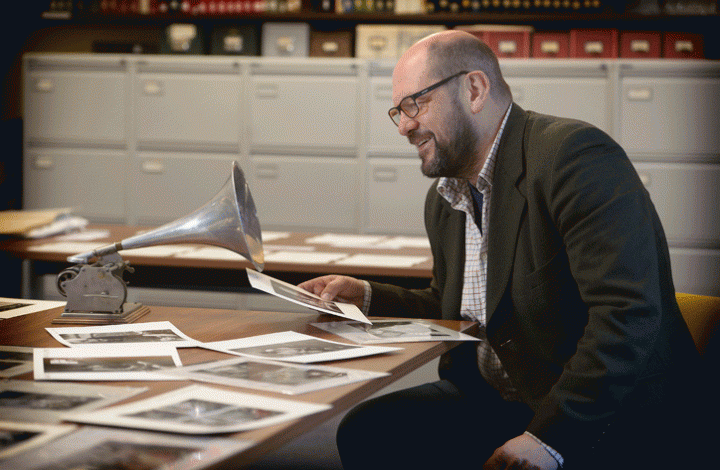School of Scottish Studies Archives
Evocative sound recordings and striking black-and-white images are among the highlights of a newly-refurbished centre showcasing Scotland’s traditional culture.

The recently upgraded School of Scottish Studies Archives in George Square host a unique resource including photographs, films, sound files and rarely-seen historic documents which capture exceptional and everyday aspects of Scottish culture and heritage.
Thousands of hours of recordings of songs, music, stories, rhyme and verse in Scots, Gaelic and English, as well as in dialects now extinct, are held in the Archives. Place names, crafts and customs are all described, such as Scottish sea shanties and the traditional Gaelic waulking songs sung by women while preparing cloth. A highlight is the Maclagan manuscripts which were collected in the 19th century to preserve folk tales from rural areas.
The University established the School of Scottish Studies in 1951 to collect, preserve, research and publish material relating to the cultural traditions and folklore of Scotland. The material has been gathered over the past 70 years by staff and students doing fieldwork in communities throughout Scotland – work which is still ongoing.
The Archives provide a unique insight into the riches of Scotland's cultures and traditions, and serve as a magnificent legacy of those past generations at this University who had the skill and foresight to collect them. As a living, growing collection, constantly being added to by staff and students alike, the Archives not only fuel much of our own teaching and research, but serve communities from well beyond the University - locally, nationally and indeed across the globe.
The early collectors visited crofting, farming and fishing communities obtaining information on subjects such as the life of crofters and farm servants, the agricultural year, food gathering and preparation, house construction, the herring industry, traditional medicine, animal husbandry, emigration, whaling, religion, weather lore, lifecycle and seasonal customs.
Life in towns and cities was also documented and there are recollections of shipbuilding, factory work, transport, housing and street life, schooling, as well as local history projects such as the notable Scottish Labour History Project which focused on work and occupations in the central belt during the 20th century.
Many of the sound recordings of songs and folklore have been made available by the University to the Tobar an Dualchais/Kist o’ Riches project, an ambitious collaboration set up to preserve, digitise, catalogue and make available online several thousand hours of Gaelic and Scots recordings.
We are immensely proud of the School of Scottish Studies Archives and delighted that the refurbishment has now made this important collection more widely accessible to everyone in Scotland. We look forward to welcoming schools and community groups as well as academics and artists.
Find out more
The building is not currently open to the public, however access to the collections is open and research visits can be arranged by appointment. Please check the website for details.

